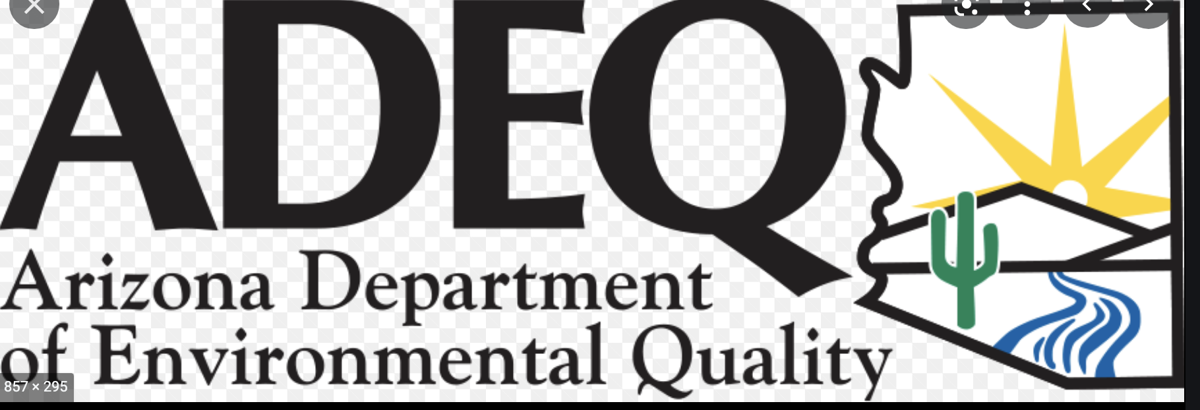PHOENIX — The state agency responsible for protecting the environment has failed to perform many required tasks in monitoring groundwater for pollution — in some cases for 29 years.
In a new report, Auditor General Lindsey Perry said state law requires the Arizona Department of Environmental Quality to monitor for agricultural pesticides in groundwater and surrounding soil. She said that is because they can affect human health and threaten to pollute water that’s used for drinking.
Yet Perry said the agency hasn’t conducted that required monitoring since 2013.
Among the report’s other key findings is that the agency has not developed or updated water quality standards for eight contaminants, “including arsenic and uranium, to help ensure that the water in aquifers is safe and protected.’’ The auditors said ADEQ has been out of compliance for anywhere from seven to 29 years in developing the standards for those contaminants.
Perry said politics may have played a role in lack of state action.
She said as far back as 2006 ADEQ was working on state standards for arsenic and uranium to match the federal standards but stopped after opposition from the Arizona Chamber of Commerce and Industry. The chamber argued the federal standards were not appropriate because arsenic and uranium naturally occur in Arizona aquifers.
The report also found failure since 2017 to monitor groundwater to detect the presence and evaluate the effects of contaminants.
Auditors also said ADEQ has not met its goal of reducing the total number of “impaired’’ surface waters that do not meet federal surface water quality standards, waters that may not be suitable for their designated purpose, whether it is swimming, fishing or boating.
In fact, they said, the number of impaired waters, after decreasing between 2010 and 2014, has now risen to 155 as of 2020. And 70 of them, the report says, have been impaired for more than 15 years.
Money is the issue, ADEQ says
ADEQ Director Mishael Cabrera disputes none of the findings, saying it was his own agency that pointed out the issues when the auditors showed up.
“We actually agree that those are items that should be addressed,’’ he said. But he said it’s a question of money.
The report says ADEQ stopped conducting ambient groundwater monitoring in 2017 because the sole employee who was doing that retired.
“However, the department did not have an explanation for why these responsibilities were not continued at that time, such as by hiring a new employee or transferring the responsibilities to other department staff,’’ Perry wrote.
This can’t be blamed on the Legislature, as Cabrera conceded he hasn’t even asked Gov. Doug Ducey, who gets first crack at the agency’s budget request before forwarding it to lawmakers, for more money.
“It’s hard to understand unless you’re actually running a really complex state agency with over a thousand laws that have to be implemented,’’ Cabrera said. “But the simple answer is, we prioritized other known problems,’’ primarily drinking-water quality and cleanup of Superfund sites.
He said the needs of every agency will exceed the resources available. “In the department, we have lots and lots and lots and lots of needs,” he said.
Only now, he said, in the wake of the audit findings, is he asking for a budget increase for the fiscal year that begins July 1.
While Cabrera acknowledges there are gaps in testing groundwater and that groundwater contamination has the potential to harm human health, he does not believe the monitoring gaps have actually caused any danger.
The bottom line, he said, is that none of the 1,500 public drinking water systems is exceeding standards. And he said about 99% of Arizonans now have access to safe drinking water, compared to 75% in 2015.
Some monitoring to resume soon
But the issue, according to the report, is getting ahead of pollution before it winds up in the drinking water and harming surface waters.
For the mandatory monitoring for agricultural pesticides in groundwater and surrounding soils, “We are requesting some additional funding,’’ Cabrera said. He said he did get authorization for a one-time transfer of dollars within the agency.
“So we will resume that (monitoring) this year,’’ he said.
Anyway, Cabrera said, ADEQ does “up-front review’’ of pesticides that are being used, to try to prevent problems later.
Money isn’t the only issue, he said. Consider the legal requirement for ADEQ to set aquifer water quality standards.
“Our read of the statute actually suggests that we don’t have statutory authority to spend money at all to develop standards,’’ he said.
“The fund that resources most of our water quality functions, that fund has allowable uses that are enumerated in statute,’’ Cabrera continued. “And setting those aquifer water quality standards is not one of them.’’
Arsenic, uranium
The auditor general reports it has been 19 years since the state updated its standards for arsenic to match the federal drinking water standards.
“Arsenic is a contaminant that can cause skin damage, circulatory system problems, and may increase the risk of cancer,’’ Perry wrote.
And DEQ has developed no standard for uranium — something it was first required to do 20 years ago — despite the increased risk of cancer or kidney toxicity.
From 1995 to 2015, 22% of the sites sampled by ADEQ had arsenic levels that exceeded federal drinking water standards and 16% had uranium levels that exceeded those federal standards.
“We haven’t prioritized setting the standards and asking for money for setting those standards,’’ Cabrera said. “But we have prioritized getting funding and asking for funding to address known problems,’’ like Superfund sites, areas of heavy industrial pollution near drinking water sources.





